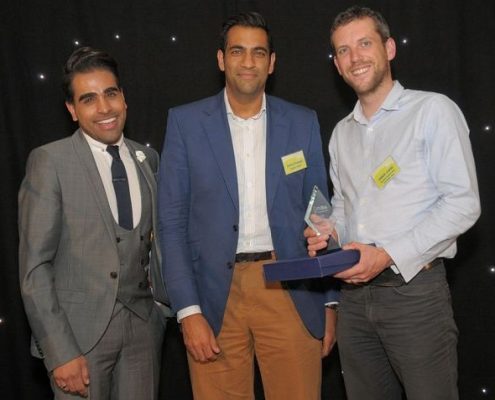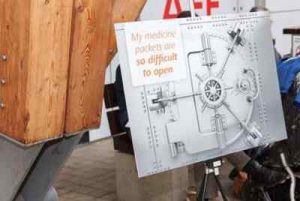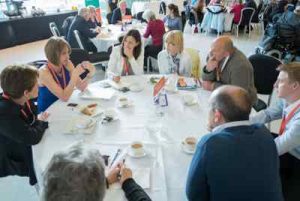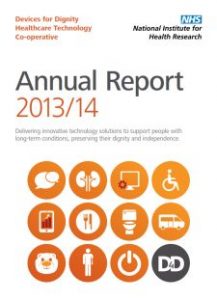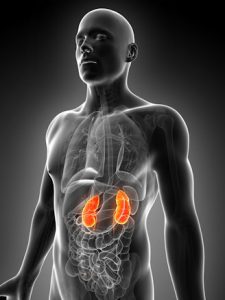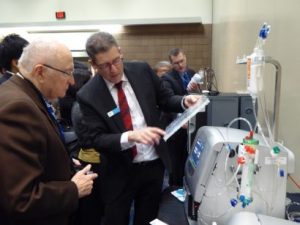Technology first of its kind to incorporate eye gaze tracking, mouse pointers and switch scanning options into one package so that speech and language therapists can use these methods to accurately record a child’s receptive language level.
A NEW high tech computer-based speech and language assessment tool helping professionals accurately record the levels of understanding of children who have a physical disability could improve the outcomes of thousands of non-verbal children.
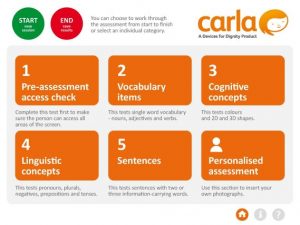
The Computerised Accessible Receptive Language Assessment (CARLA) software has been designed in response to an audit which identified that speech and language therapists found it difficult to get an accurate picture of a child’s receptive language using current tests if the child had a physical disability and couldn’t speak or point to pictures to show what they could understand.
The technology has been developed by the NIHR Devices for Dignity Healthcare Technology Co-operative (D4D), a specialist centre based in Sheffield, and Barnsley Hospital’s Assistive Technology team in partnership with Jabbla, a Belgian technology company. D4D is hosted by Sheffield Teaching Hospitals NHS Foundation Trust and empowers patients to live more dignified, independent lives.
Incorporating eye gaze tracking, mouse pointers and switch scanning options, the software is the first assessment of its kind to combine all these features into a single software package so that speech and language therapists can use these methods to accurately record a child’s receptive language level.
Children with physical disability often use these methods for other computer programmes so by integrating these options into CARLA , the software aims to reduce the barriers these children face when being assessed. Estimates show that up to 6,200 children and young people in England need communication aids to make choices and create messages using pictures, symbols, words or letters that can be linked to an electronic voice.
According to the Office of the Communication Champion, providing an appropriate communication aid can save over £500K in a child’s lifetime, as well as enabling them to receive appropriate educational provision.
Simon Judge, joint communication aid project lead for D4D and senior clinical scientist from Barnsley Hospital’s Assistive Technology Team said: “We’re delighted to be launching this new assessment. Up until now, when a child cannot point to their answers, speech and language assessment tools have relied on the therapist’s interpretation of the child’s responses, but this system gives an objective record of these responses as the child can make their choices using eye gaze, head switches or mouse pointers.
“As a result of having a more accurate picture of these children’s ability to understand language, the software will make it easier for speech and language therapists to target their therapy at an appropriate level. This could make a significant difference in terms of their educational outcomes and ensuring the appropriate language support is put into place.”
The software, which has been designed for children with a physical disability, also has the potential to help children with sensory or attention difficulties and adults with communication disabilities such as those with learning difficulties, dementia or aphasia.
Currently speech and language therapists use a variety of published assessments in order to determine the comprehension of spoken language of children with physical disability. These assessments traditionally use drawings which the child points to in order to make a selection.
When a child can not point to the pictures because of a physical disability, therapists normally adapt them by adapting the pictures or layout, by using alternative pictures or objects or by trying to match what they see the child do in their natural environment to levels on the assessment. The adaptations made generally invalidate any standardised scores given by the assessment.
Physically disabled children may be unable to point to their answer and therefore the assessor often has to observe the child’s movements, body language or eye signals and interpret their responses. Clearly this is subjective and open to human error, so CARLA aims to provide objective results and reduce the need for human interpretation. Inaccurate results may mean some children are believed to understand parts of language, such as vocabulary, cognitive and linguistic concepts, when in fact they do not.
Alternatively the reverse may occur where the children may understand more than they have ever been able to demonstrate. These results may impact on the level of their educational work, their language therapy programme, their communication aid use and the expectations of those around them.
The software will initially be available for use by speech and language therapists and teachers.
For more information about the new Computerised Accessible Receptive Language Assessment (CARLA) visit http://www.techcess.co.uk/.
Image: A screenshot from the Computerised Accessible Receptive Language Assessment (CARLA) software.


